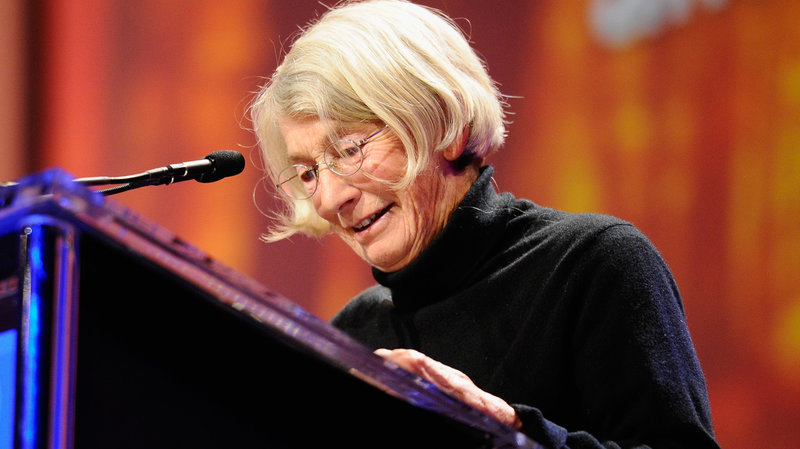In her famous poem “The Summer Day,” Mary Oliver posed the question “Tell me, what is it you plan to do/with your one wild and precious life?”
Oliver, who died of lymphoma on Thursday at the age of 83, answered this question through her work as an award-winning poet committed to communicating the beauty of nature using direct and clear language. In an interview with NPR in 2012, she noted,
“Poetry, to be understood, must be clear…It mustn’t be fancy. I have the feeling that a lot of poets writing now, they sort of tap dance through it. I always feel that whatever isn’t necessary should not be in the poem.”
Oliver was born in Maple Heights, Ohio in 1935. She began writing poetry as a teenager and published her first collection, “No Voyage, and Other Poems” in 1963 when she was 28 years old. She published more than 15 volumes of poetry and essays and was the recipient of countless awards and honors including a Guggenheim Fellowship, the 1984 Pulitzer Prize for Poetry for American Primitive, and a 1992 National Book Award for New and Selected Poems.
Despite never graduating from college, she taught at both Case Western Reserve University and Bennington College and served as Poet in Residence at Bucknell University and Writer in Residence at Sweet Briar College. Although a Midwesterner by birth, Oliver spent most of her adult life in New England, settling in Provincetown, Massachusetts in the 1960s with her partner and literary agent Molly Malone Cook. This proximity to nature provided inspiration for her poetry and was also a backdrop for connections between the natural and spiritual worlds. While she harbored some skepticism at organized religion and took inspiration from a variety of religious traditions, Oliver’s poetry is popular in churches, often quoted in sermons or used in church reading groups, and frequently pops up in divinity school chapel services. In a 2017 profile in The Christian Century, Debra Dean Murphy examined the connection between Christian faith and Oliver’s work, noting,
“All of Oliver’s work assumes an intimacy with the natural world that is in keeping with the kinship of creaturehood described in the opening lines of the Bible. Uninterested in a purported inviolable boundary between humans and the nonhuman world, between observer and the observed, she practices anthropomorphism without embarrassment or guile.”
In her poem “When Death Comes,” Oliver wrote, “When it’s over, I want to say all my life/I was a bride married to amazement.” One need look no further than her poetry to know that she accomplished that which she set out to do.

